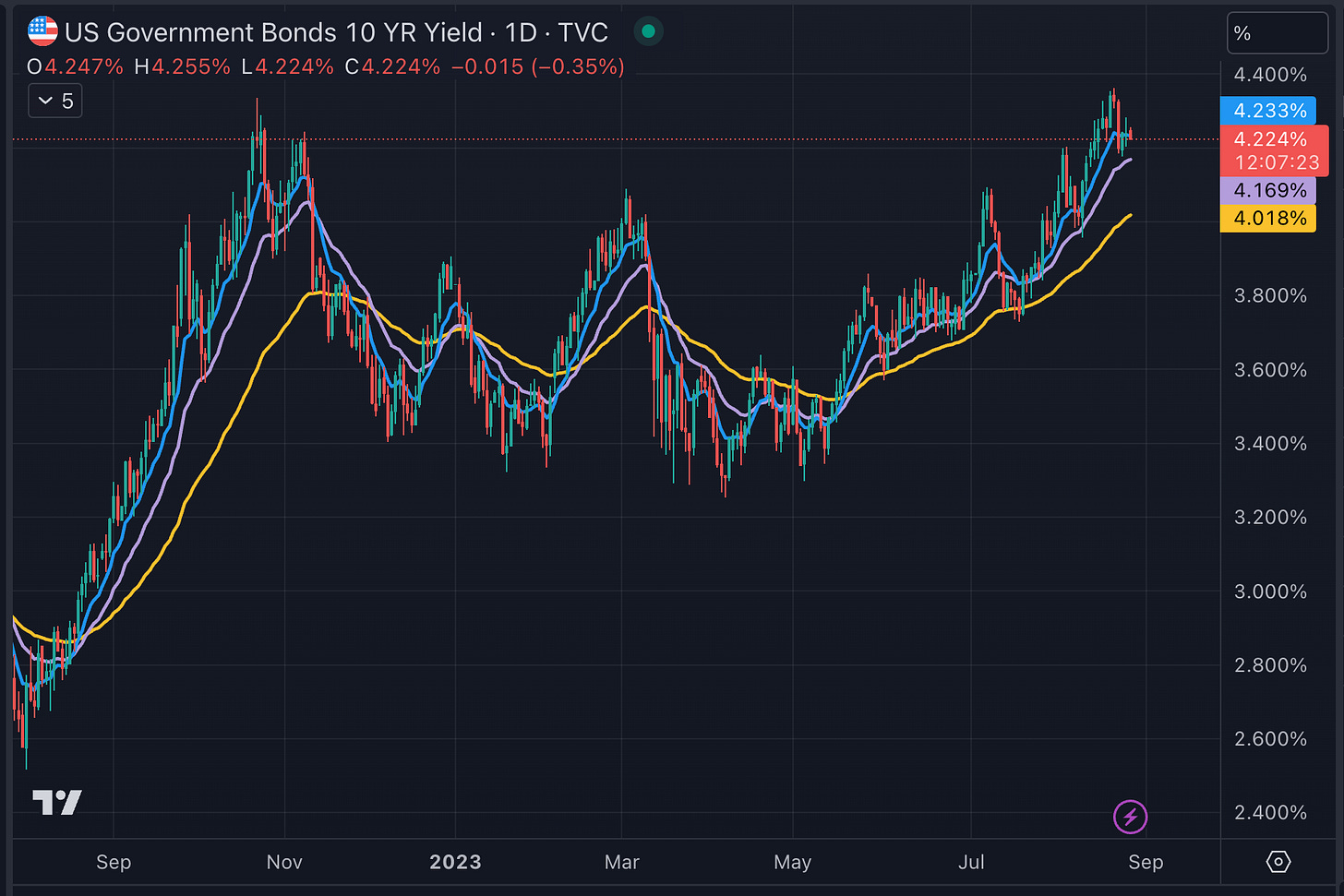Attack the Week (ATW)
August 28, 2023
Monday Thoughts
We are closing in on another month. Jackson Hole, as expected, was a doozy. Powell’s speech on Friday didn’t give any new clues and certainly dismissed any speculation about a change in the inflation target or a discussion about higher R*. As mentioned in last week’s ATW, he did precisely leave all options on the table, which is the most prudent way forward.
Where does this leave us with regard to Treasuries (US 10-year yields in the below chart)?
Since May, we had about a 100 bps move higher in yields. When looking at sell-off periods over the past 20 years, the current sell-off just ranks below average. We certainly have room to move a bit higher depending on which historical period you see the strongest resemblance with.
Let’s look at the week ahead and some more interesting developments.




